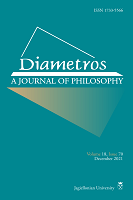Prioritarianism in Health-Care: Resisting the Reduction to Utilitarianism
Prioritarianism in Health-Care: Resisting the Reduction to Utilitarianism
Author(s): Massimo ReichlinSubject(s): Philosophy, Ethics / Practical Philosophy, Health and medicine and law
Published by: Instytut Filozofii Uniwersytetu Jagiellońskiego
Keywords: distributive justice; utilitarianism; egalitarianism; maximin/leximin theory; prioritarianism;
Summary/Abstract: Tännsjö’s book Setting Health-Care Priorities defends the view that there are three main normative theories in the domain of distributive justice, and that these theories are both highly plausible in themselves, and practically convergent in their normative conclusions. All three theories (utilitarianism, the maximin/leximin theory and egalitarianism) point to a somewhat radical departure from the present distribution of medical resources: in particular, they suggest redirecting resources from marginal life extension to the care of mentally ill patients. In this paper I wish to argue, firstly, that prioritarianism should not be considered as an amendment to utilitarianism, as it is in Tännsjö’s view, but as a distinctive fourth option. This can best be appreciated if we focus on a reading of the theory that emphasizes its derivation from egalitarianism and its attempt to develop an intermediate approach between utilitarian and egalitarian intuitions. Secondly, in response to Tännsjö’s central objection to prioritarianism, I will argue that the theory does not apply in intrapersonal cases but is only relevant for decisions regarding the interpersonal distribution of benefits. Finally, I will suggest that a practical convergence of the four theories on specific issues such as artificial reproduction or mood enhancement is far less likely than Tännsjö seems to believe.
Journal: Diametros
- Issue Year: 18/2021
- Issue No: 69
- Page Range: 20-32
- Page Count: 13
- Language: English

